We started our first day of university cooking up some traditional Mexican dishes. At Ibero, the typical apron doesn’t suffice for the kitchen. Instead, we all had to dress in what looked like full PPE gear that doctors wore during an operation(see photo below). As ridiculous as we looked, it ensured avoiding any health and safety risks. Knowing me in the kitchen, the PPE gear probably saved me from some close calls. The traditional dishes we made were “tinga de pollo al chipotle,” “agua de jamaica y agua de mandarina con romero,” “guacamole,” and “tacos dorados de papa”. My personal favorite was the ‘tacos dorados de papa’ (see photo below). The crispiness of the tortilla, the delicious cheese, and the warm mashed potato hit all the right places. It wasn’t only enjoyable to make these traditional dishes but follow the method in Spanish. It built on what I had already learnt in New Zealand, and I was able to converse with the Mexican chefs. Feeling full of tortillas and satisfied with my Spanish practice, we left the kitchen for our first lecture.
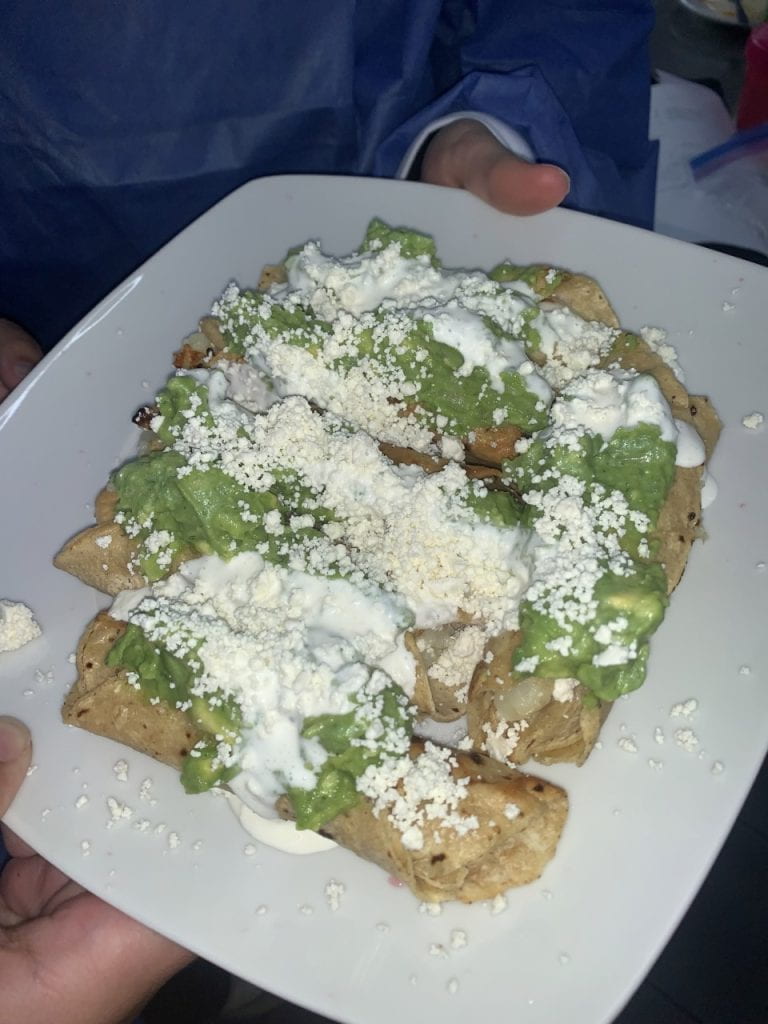
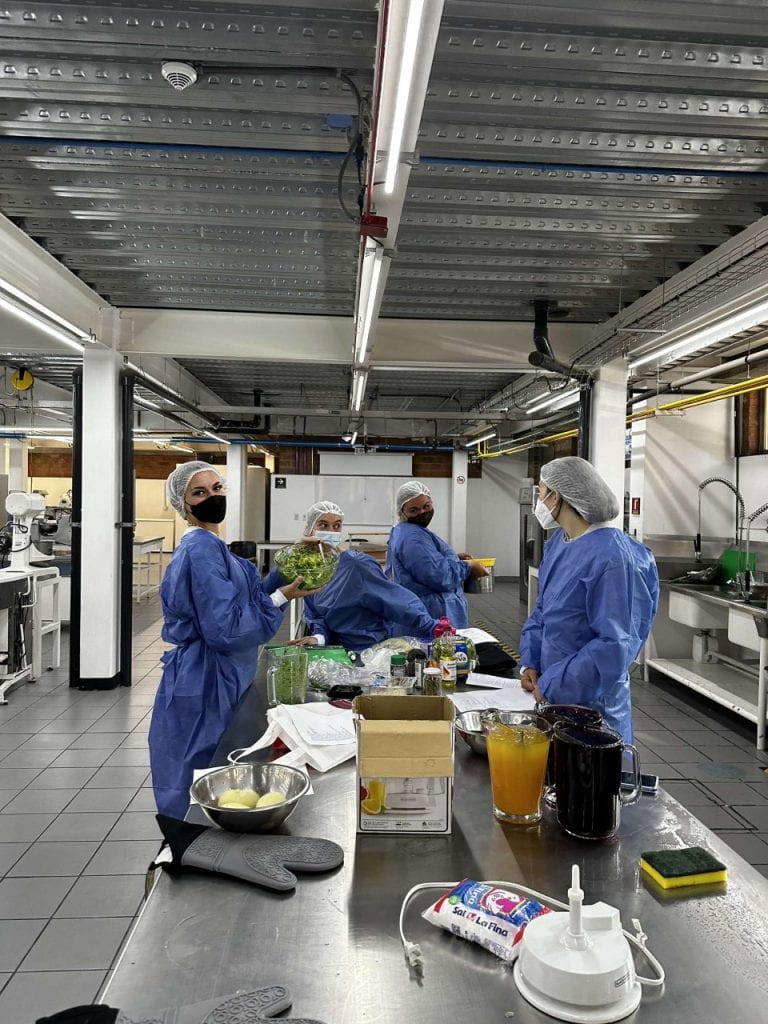
I was very excited for Week One in Ibero, as the first social issue we would be learning about is something I am very passionate about, Human Rights. As my bio outlines, I want to work with people who have had their human rights violated, particularly in the field of human trafficking. I was intrigued to see this social issue from a Latin American perspective and what their prominent human rights violations were compared to New Zealand. An evident issue within Mexico that involved the violation of human rights was enforced disappearances. More than 100,000 people have disappeared in Mexico, with no trace of their bodies or what happened to them. This issue was rooted when political parties would kidnap people that would speak against their ideals as a form of power. Previous cases have involved (but are not limited to) victims being tortured, forced to sign legal documents admitting to crimes they didn’t commit, and death. There has been a lack of help from the state, leading to many families actively looking for their lost ones and taking social action through strikes. Enforced disappearances impact not only the victim itself but their families and the function of society as a whole. Learning about these types of social realities for Mexicans brought a shock to my system. Something that was such a norm for these people was something unheard of in New Zealand. It made me feel motivated to help families who are stuck in these difficult situations. It was also interesting to learn about the United Nations and Inter-American laws revolving around human rights. As I hadn’t learnt this in New Zealand yet, it was a good foundation to know for my future work in this particular area.
To finish up our first week, we went to an NGO that specializes in defending human rights and trying to improve the overall social structure in Mexico. Based in Santa Fe, it was called “Centro De Derechos Humanos Miguel AGUSTÍN Pro Juarez, A.C” In the majority of cases, they work with victims that have suffered human rights violations, such as enforced disappearances and violence through militarisation. They have an open-door policy in which they deal with many minority groups, including women, indigenous, migrants, and lower socio-economic groups. As they explained their work to us, they provided previous case studies as an example. Hearing about these consistent human rights violations was a surreal experience, something I have never come across before in New Zealand. After the emotional presentation, we were able to have a tour of this non-governmental organization. We got the chance to meet the people that worked in the communications, international, and legal offices of the organization. Everyone I met within Miguel Agustin Pro Juarez inspired me with the amount of work and dedication they put in for their cause. After hearing about all the terrible case studies, it was a nice way to end the trip witnessing the amount of sweat and tears dedicated in order to avoid future violations. Upon departure, we were able to look at the beautiful wall art that was near the entrance. They went through each piece of art, explaining its significance, whether it was a role model of theirs (Gandhi, for example) or an important event in time. The mix of bright colors and significant meanings created an amazing vision board, which reflected the organization’s values and goals.
On Saturday, we were fortunate enough to have Ibero take all international students to the Teotihuacan Pyramids. Situated about an hour from the city, the pyramids were created by and accommodated for the Teotihuacanos. The archaeological site was beautiful, containing the Pyramid of the Sun (Pirámide del Sol), the Pyramid of the Moon (Pirámide de la Luna) and the Avenue of the Dead. The tour guide brought insight into the astrological, cultural, and spiritual significance this place held for those who used to live in Teotihuacan. Every detail of this landmark, from the number of steps to the statues to the art painted on the stones, all linked to some type of belief that the Teotihuacanos held. Their ideology was based on the balance of their being; life and death, sun and moon, men and women. An interesting fact I learnt from this tour was how they used to build a new city every 104 years. Once the women had ruled for 52 years and men ruled for 52 years, there was a strong belief that the city had run its life course. Once it was 104 years, when women and men had their time of ruling, they would build a completely new city on top of their original one. This was fascinating as they structured and aligned the city to be the exact same, meaning that we were walking on top of many duplicated cities below us. Their way of life was not only completely different to New Zealand but completely different to how Mexican society is today. Around the pyramids, there were many markets in which they were selling pyramids of the sun, pyramids of the moon, jewellery, and these flutes that made jaguar noises. I brought this disk that showed the female and male calendars of the Teotihucanos. Not only was it stunning, but when you put it up to the light, you were able to see the shape of the sun through the disk. After the Teotihuacan Pyramids, all the international students got to eat some traditional Mexican meals at this family-owned restaurant. It was delicious and went down well with a corona. Having some time to spare, the kiwis from both international groups came together for some touch rugby. We had the chance to teach other international students how to play. Although they seemed slightly confused, they were enjoying the game. It was nice to see people from opposite sides of the world play a New Zealand-loved game. Goes to show that you can take the kiwi out of New Zealand, but I guess you can’t take New Zealand out of the kiwi!
We spent Sunday going to the handmade markets in the city centre of Mexico. The markets were pretty overwhelming, I was alluded to all the gorgeous colours and patterns everywhere I looked. You could find almost everything in these markets; pillowcases, pottery, key chains, bracelets, tequila shots, bags, dresses, crystals, shoes, and so much more. The amount of time and effort put into these pieces of art shows the true work ethic of Mexican people.
This week I have witnessed some serious issues in regard to human rights violations. But I have also been enriched by their cultural and historical ways of life. From gazing at blue swirls on pottery cups at the markets to learning how sustainable the Teeotihuacanos were in 400 BC. Like New Zealand, we uphold beautiful culture, yet have many things to work on in order to improve our society. Although New Zealand and Mexico are on completely opposite sides of the world, we really aren’t so different after all.

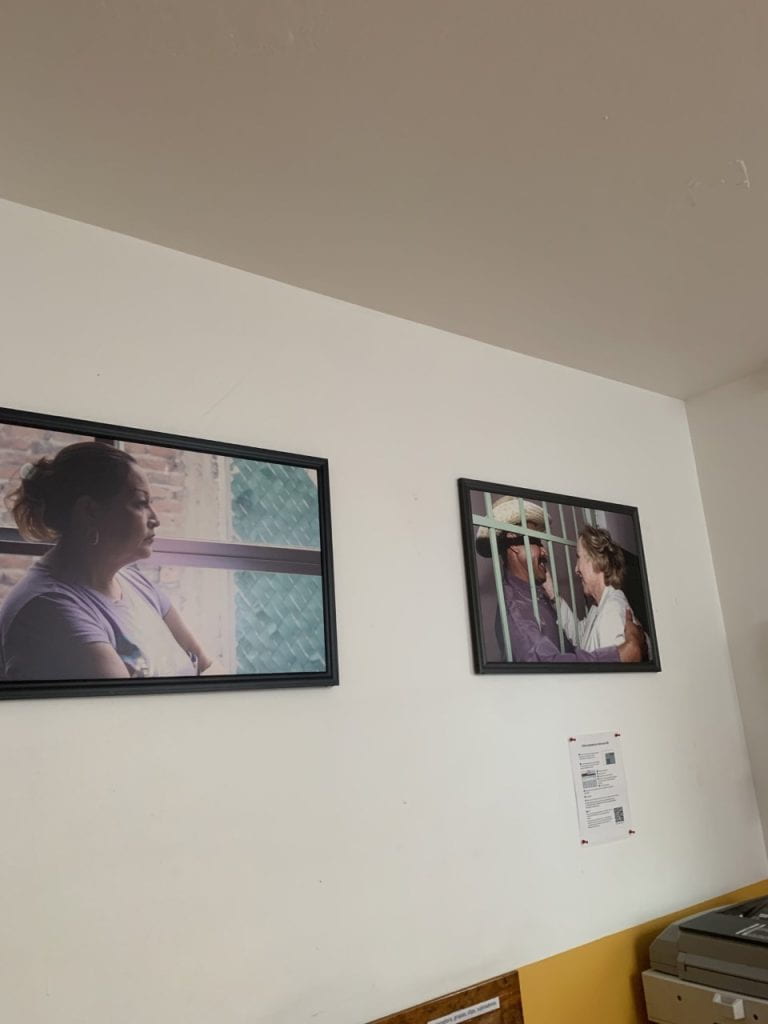
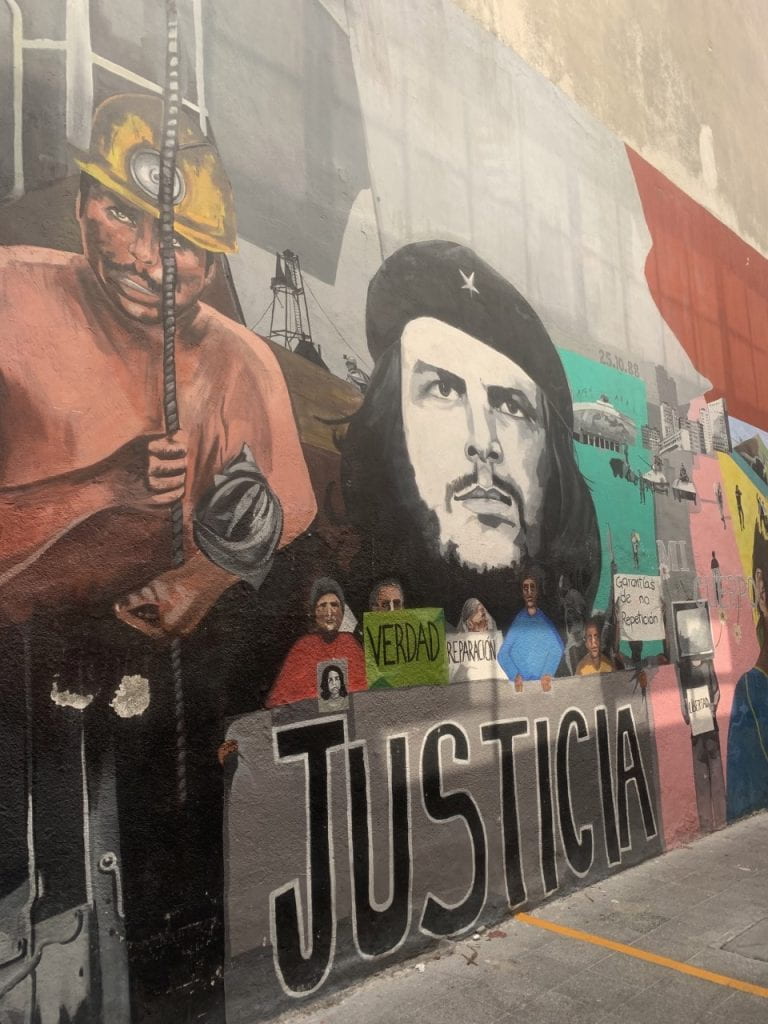
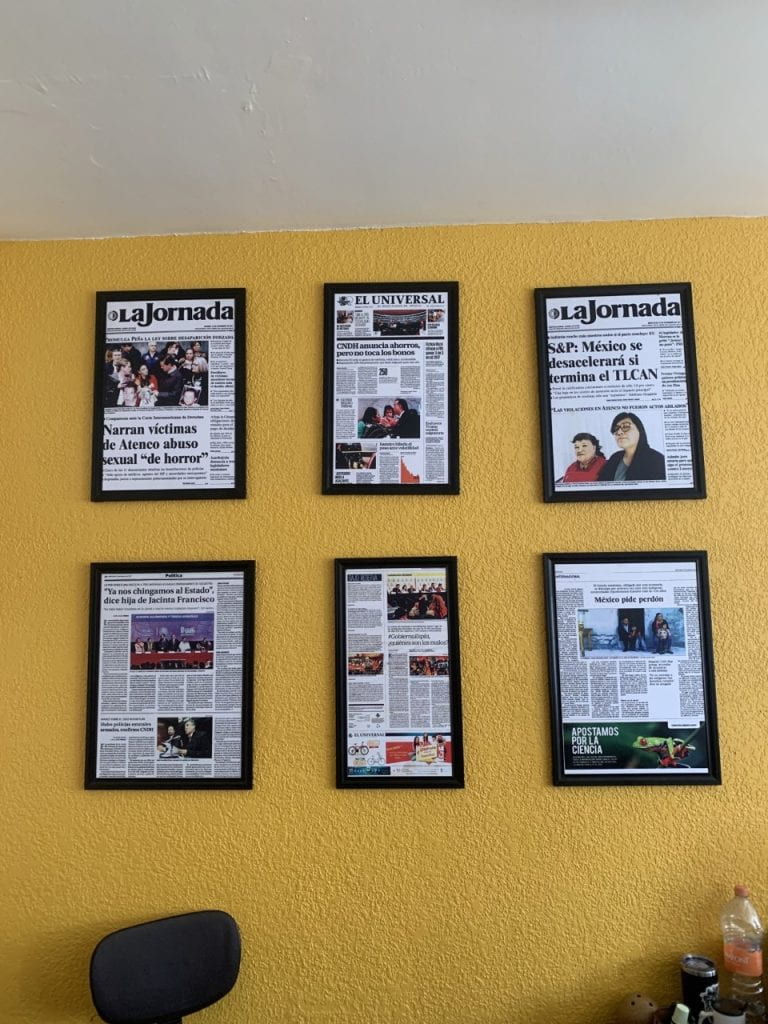
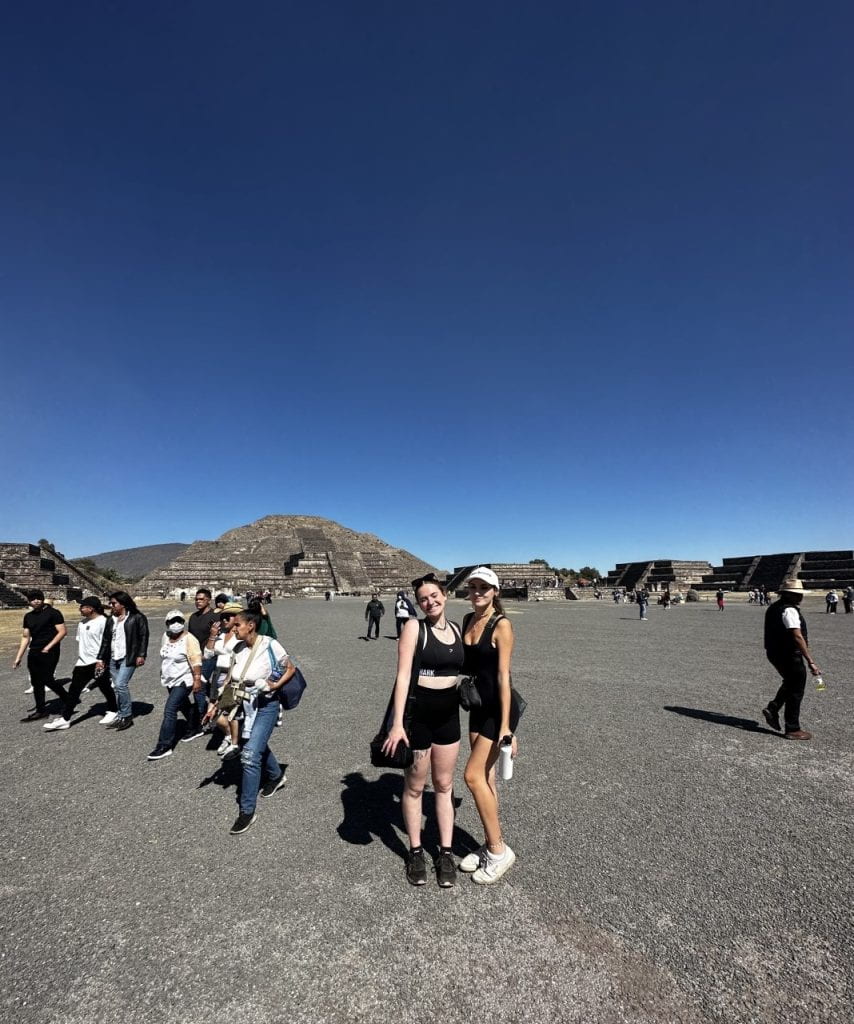
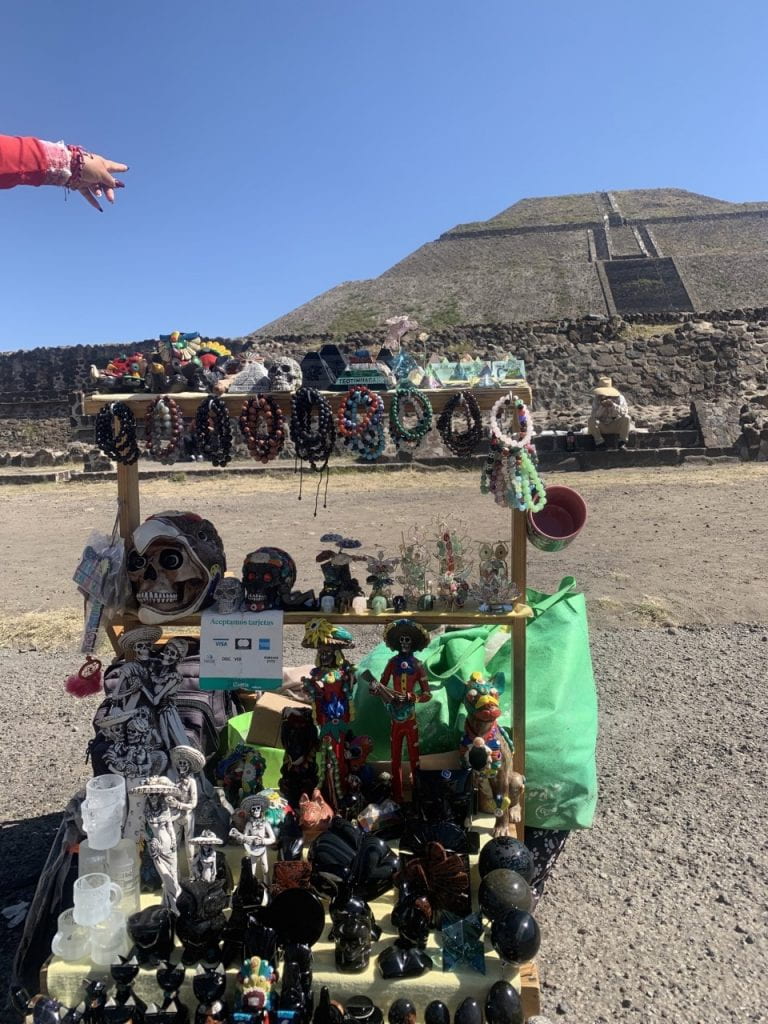
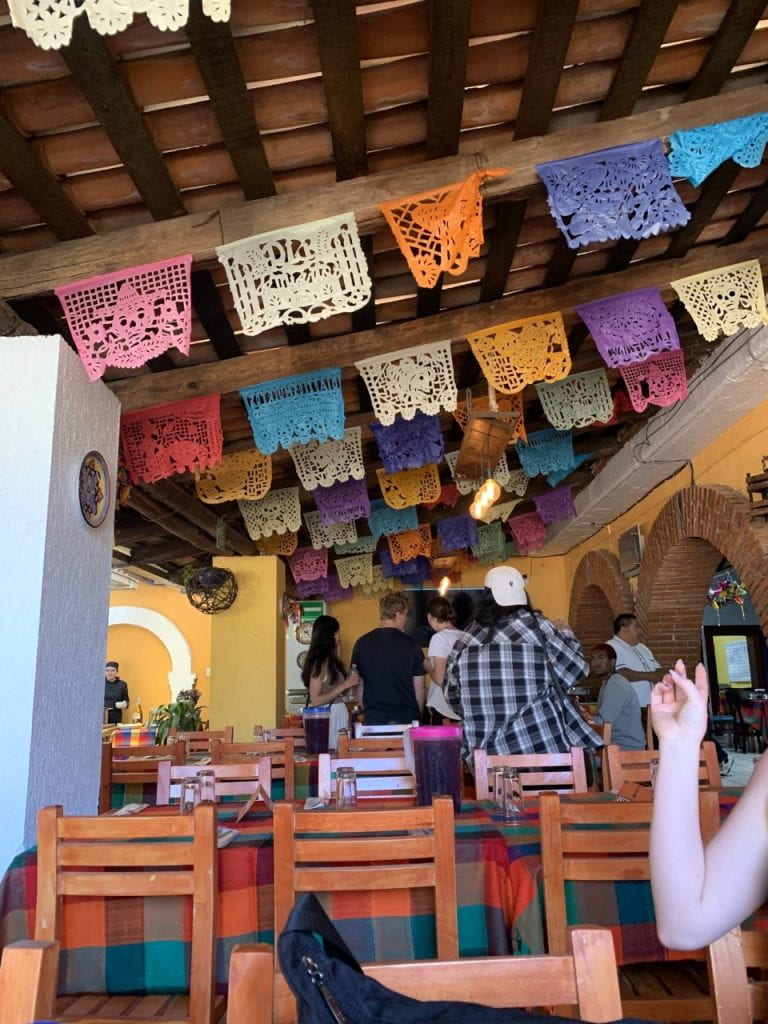
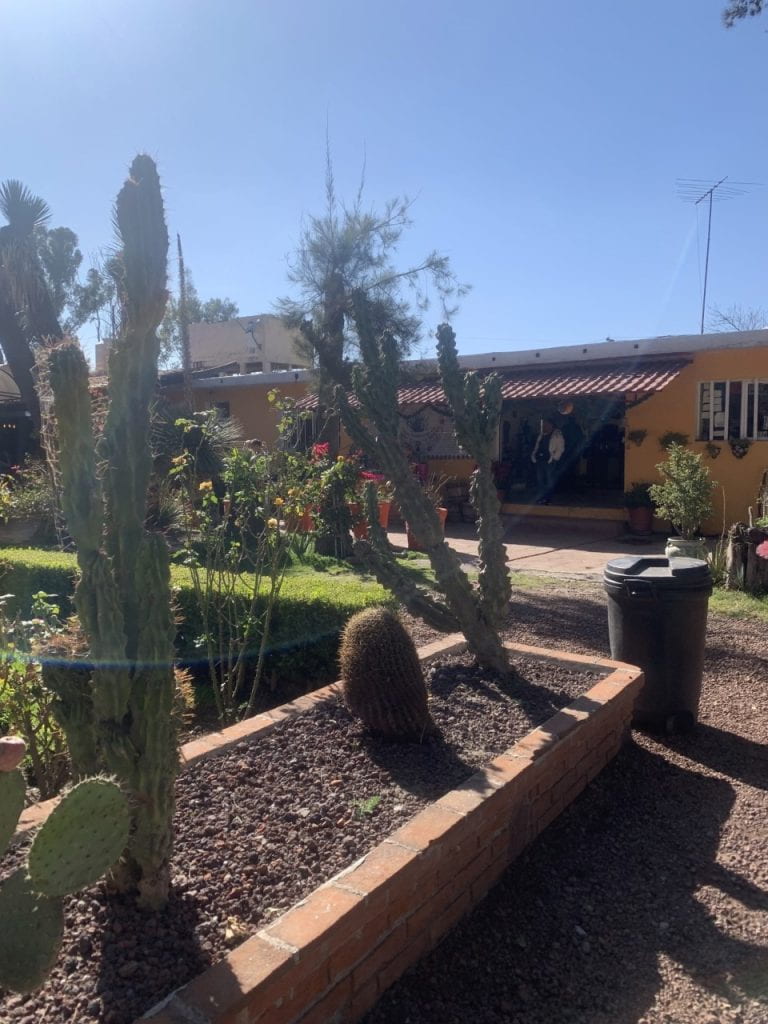
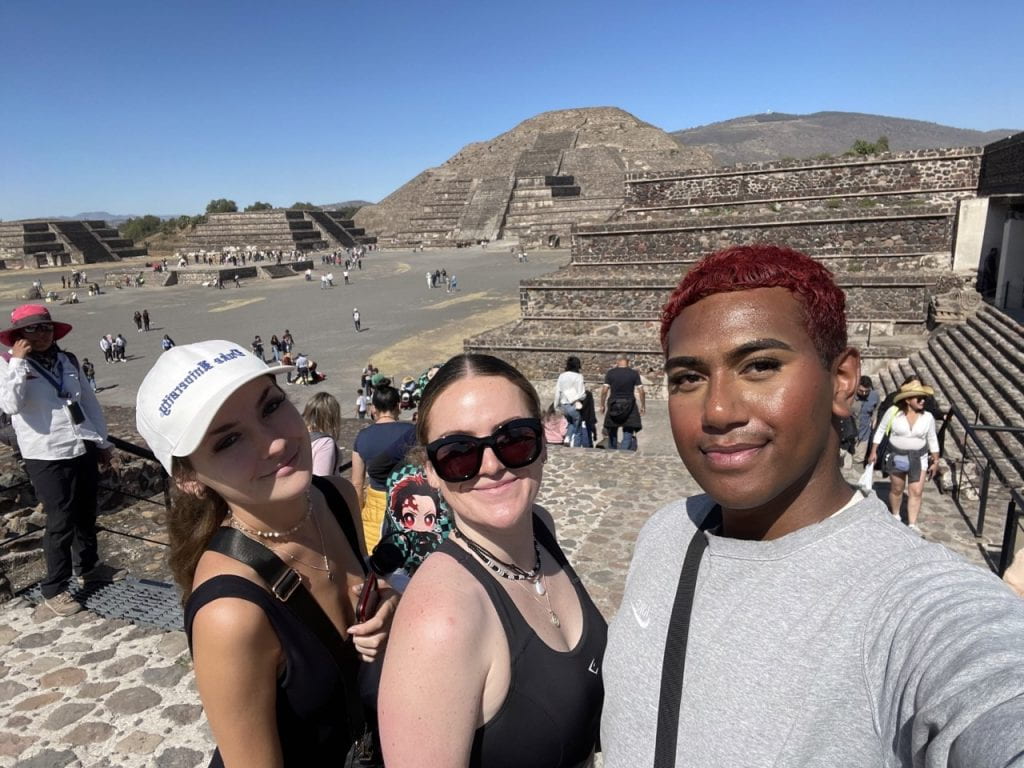
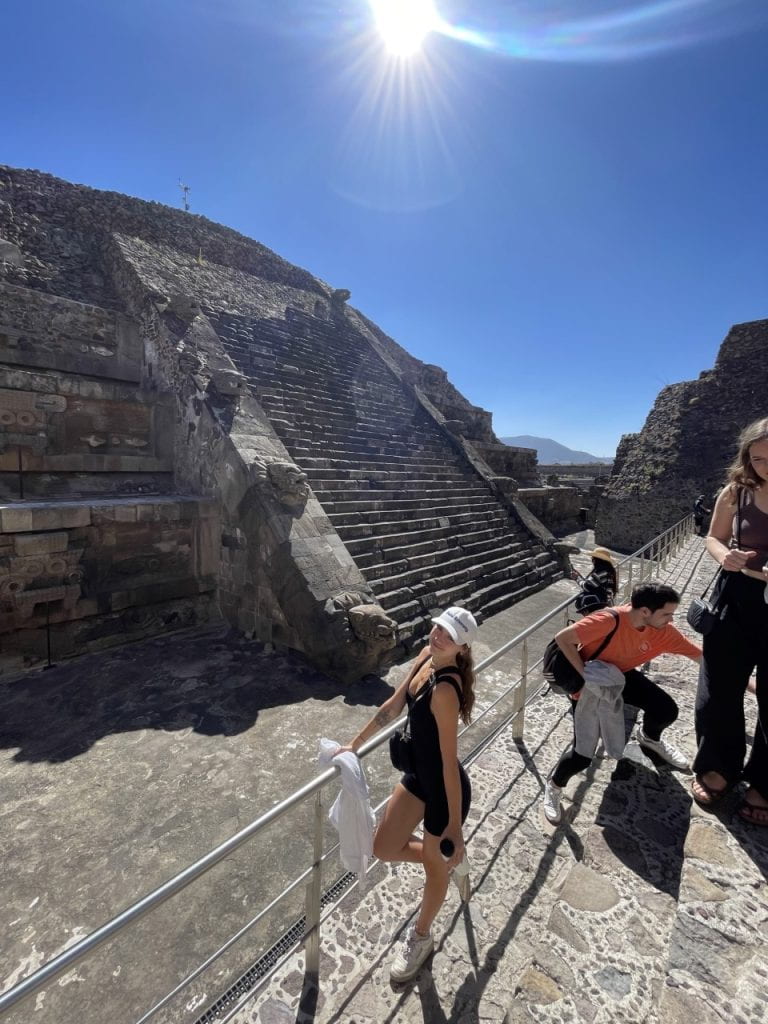
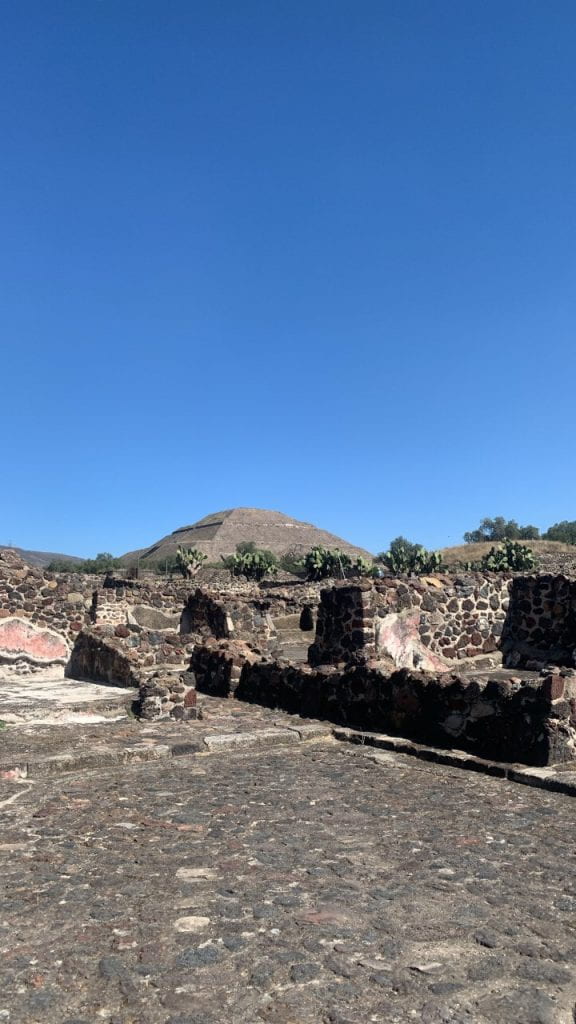
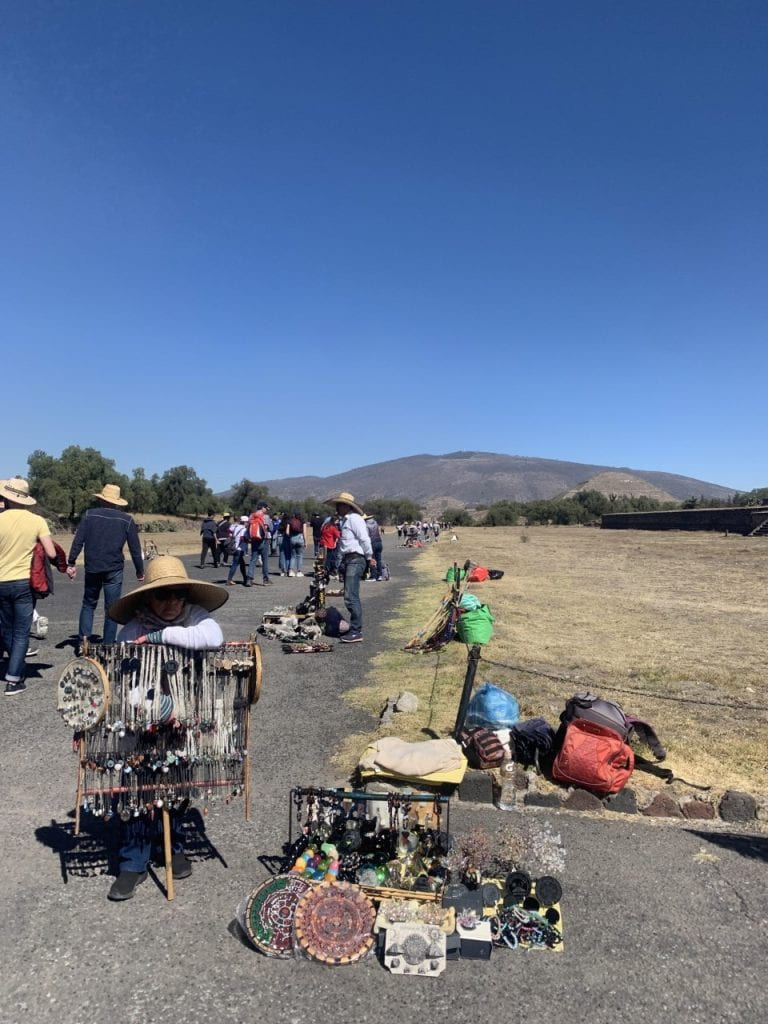

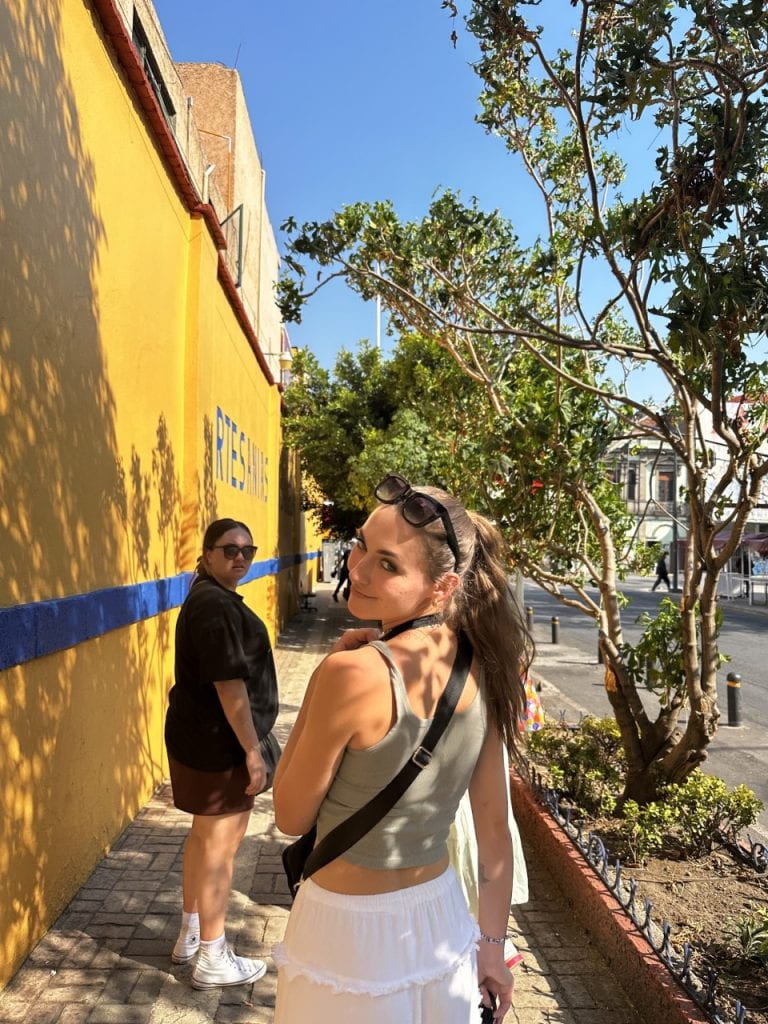
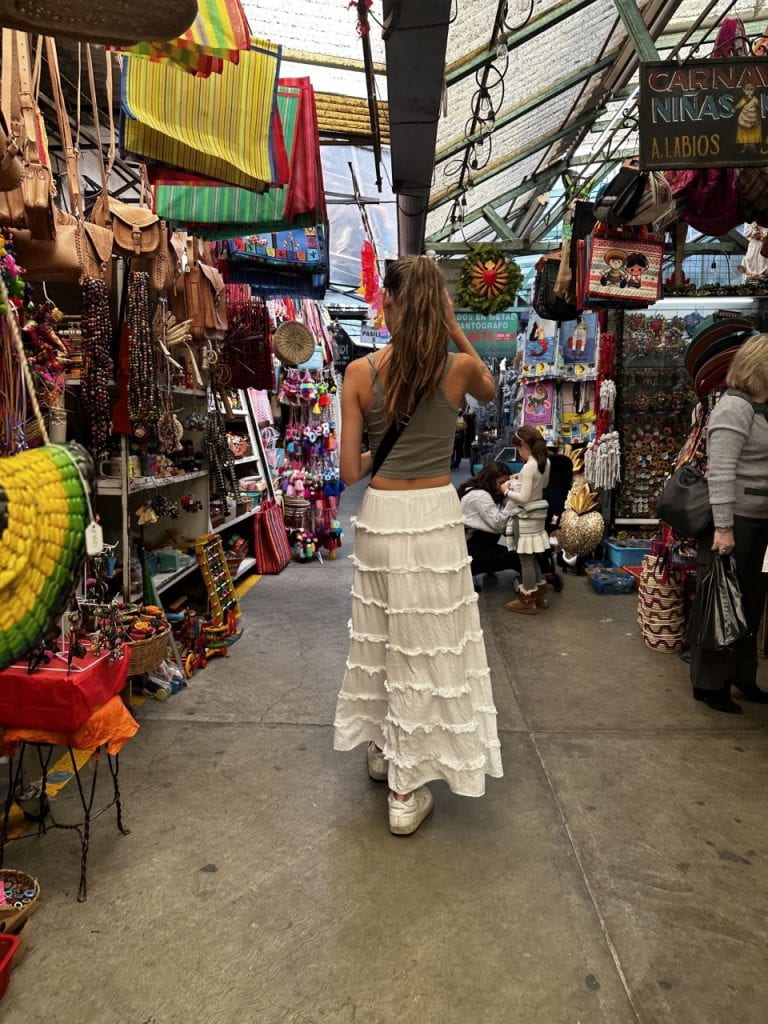
Very interesting Maria! Your writing tells me that Mexicans are very resilient people. You paint a picture of the constant struggle in the structure within their society. It must be hard to live with constant threat to personal safety and the instability that comes with that. It seems that they value their past which is reflected in their traditional cuisine and the vibrant colours in their surroundings. It is natural to compare the Kiwi way of life and appreciate that we have far less corruption here and more freedom. I can see that you admire and respect the Mexicans that devote their time to upholding human rights for others.